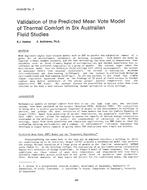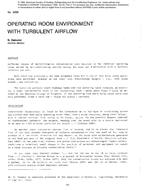The room air conditioner widely used in Japan is made up of an indoor unit and outdoor unit. Finned-tube air heat exchangers in heat-pump-type room air conditioners operate as both evaporators and condensers. When operated as an evaporator, it presents the following two significant problems:
1. Draining from surface of fins attached to the indoor unit during cooling in summer.
2. Defrosting from surface of fins attached to the outdoor unit during heating in winter.
To overcome these problems, hydrophilicly coated fins were tested and evaluated, with the following results:
1. Under indoor dehydrating conditions, it was confirmed that the hydrophilic-type fins led to a 40-50% reduction of air pressure drop across the heat exchanger. As a result, the cooling capacity improved as much as 2-3% compared to one using untreated fins.
2. Under outdoor defrosting conditions, it was found that hydrophilic-type fins led to a 40-50% reduction of air pressure drop. Therefore, the heating capacity improved as much as 2-3% and defrosting time became shorter by 30% compared to untreated fins. As mentioned above, tile newly developed hydrophilic-type fins contributed toward making the air conditioner more compact in design and reducing the entire cost.
Unit: SI
Citation: ASHRAE Transactions, 1987, vol. 93, pt. 1, New York, NY
Product Details
- Published:
- 1987
- Number of Pages:
- 10
- File Size:
- 1 file , 500 KB
- Product Code(s):
- D-NY-87-3017


